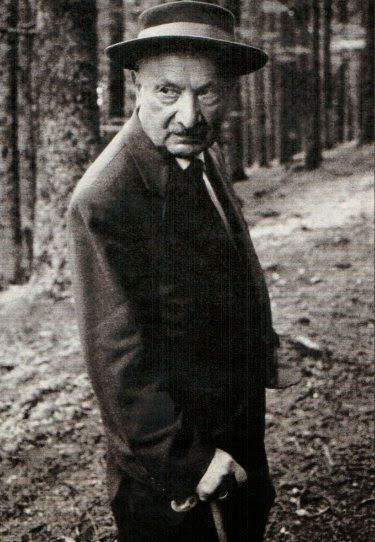Spring 2025 Reading Group Schedule
Convener
Patrick Dove, Dept, of Spanish & Portuguese
Starting January 24, 2025, the reading group meets Fridays, from 2 - 3:30, in Maxwell Hall 122, unless noted otherwise.
The main text can be found in Martin Heidegger, Nietzsche, Zweiter Band (Pfulllingen: Neske, 1961); English translation: Martin Heidegger, Nietzsche, Volumes 3 and 4 (in one volume), edited by David Farrell Krell (New York: Harper & Row, 1979 - 1987). The page numbers below refer to the English translation. Heidegger's Early Greek Thinking is out of print, but an electronic copy is available at the Dasein Foundation.
Jan 24
Nietzsche, v4, 1-29 (PDF).
Jan 31
Nietzsche, v4, 30-68.
Feb 7
Nietzsche, v4, 69-101.
Feb 14
Nietzsche, v4, 102-135.
Feb 21
Nietzsche, v4, 136-166.
Feb 28
“The Anaximander Fragment,” Early Greek Thinking, 14-35.
Mar 7
“The Anaximander Fragment, Early Greek Thinking, 36-58.
Mar 14
No meeting.
Mar 21
Spring break: no meeting.
Mar 28
Nietzsche, v4, 167-196.
Apr 4
“Logos” (Heraclitus Frag B50), Early Greek Thinking, 59-78.
Apr 11
“Aletheia” (Heraclitus, Frag B16), Early Greek Thinking, 102-123.
Apr 18
Symposium
Apr 25
Nietzsche, v4, 199-220.
May 2
Nietzsche, v4, 221-250.
“Being, History, and Nihilism: Heidegger, Nietzsche, and the Greeks”
 Heidegger’s consideration of nihilism as Nietzsche first thematized it raises a fundamental philosophical and interpretive problem. On the one hand, the reference to “European nihilism” as devaluation of the highest values would seem to invoke a historically specific situation. For readers of Heidegger, it is not difficult to surmise that nihilism as culmination or closure of the history of metaphysics would obtain with the advent of technological ways of understanding and organizing the world—“Gestell” is the term that Heidegger famously introduces in his essay “The Question Concerning Technology.” A world that understands itself as having been entirely produced by anthropogenic and technological forces, would seem to align with the Nietzschean account of nihilism. And yet, Heidegger also insists that what Nietzsche calls “European nihilism” does not simply describe a determinate period, but rather names the essential destiny of the history of Western thought.
Heidegger’s consideration of nihilism as Nietzsche first thematized it raises a fundamental philosophical and interpretive problem. On the one hand, the reference to “European nihilism” as devaluation of the highest values would seem to invoke a historically specific situation. For readers of Heidegger, it is not difficult to surmise that nihilism as culmination or closure of the history of metaphysics would obtain with the advent of technological ways of understanding and organizing the world—“Gestell” is the term that Heidegger famously introduces in his essay “The Question Concerning Technology.” A world that understands itself as having been entirely produced by anthropogenic and technological forces, would seem to align with the Nietzschean account of nihilism. And yet, Heidegger also insists that what Nietzsche calls “European nihilism” does not simply describe a determinate period, but rather names the essential destiny of the history of Western thought.
Our reading focuses on Heidegger’s 1940 lecture course “Nietzsche: The Will to Power” followed by the later treatise entitled “Nihilism as Determined by the History of Being.” Our study also includes essays contained in Early Greek Thinking, essays on Anaximander and on Heraclitus. These archaic fragments set forth the fundamental concerns that have preoccupied philosophy ever since: rise and fall; time; justice; language; thinking and (coming into) being. If we are to take seriously the proposition that nihilism names the essential destiny of Western thought, then these remnants are unavoidable for us today. Heidegger is also preoccupied by what has gone unheard in the long tradition of philosophical responses to the pre-Socratics, and hence the possibility that a return to these fragments might provide the spark for what he often refers to as inception—the distant thought of an Other beginning.
The reading group meets Friday afternoons starting January 24, 2025, from 2 till 3:30, in Maxwell Hall 122. Like all Center activities, the reading group is open to the public.
Graduate students may receive independent-study credit for taking part in the reading group (1 - 4 credits of CTIH-T 700). Interested students should contact the convener, Professor Dove, to agree on a work plan and get permission to register.
The Reading Group constitutes the intellectual heart of the Center and predates the Center by many years. Here are some of the major texts the group has studied:
Theodor W. Adorno, Aesthetic Theory
Hannah Arendt, The Human Condition
Aristotle, Nicomachean Ethics.
Alain Badiou, Being and Event.
Mikhail Bakhtin, Art and Answerability.
Simone de Beauvoir, The Second Sex.
Henri Bergson, Matter and Memory.
Hans Blumenberg,The Legitimacy of the Modern Age.
Stanley Cavell, The Claims of Reason.
Dipesh Chakrabarty, Provincializing Europe.
Michel De Certeau, The Mystic Fable, Vol. 1.
Gilles Deleuze, Cinema I; Difference and Repetition.
Eugen Fink, Play as Symbol of the World.
Michel Foucault, The Hermeneutics of the Subject.
Sigmund Freud, The Interpretation of Dreams.
Hans-Georg Gadamer, Truth and Method.
Édouard Glissant, Poetics of Relation.
G.W.F. Hegel, The Phenomenology of Spirit.
Martin Heidegger, Being and Time; Contriburtions to Philosophy (Of the Event).
Edmund Husserl, The Crisis of European Sciences.
Jean-François Lyotard, The Differend.
Maurice Merleau-Ponty, The Phenomenology of Perception; The Visible and the Invisible.
Plato, The Laws.
Jacques Rancière, The Names of History.
Eve K. Sedgwick, Epistemology of the Closet.
Ludwig Wittgenstein, Philosophical Investigations.
Sylvia Wynter, Black Metamorphosis.
Slavoj Zizek, The Puppet and the Dwarf.


